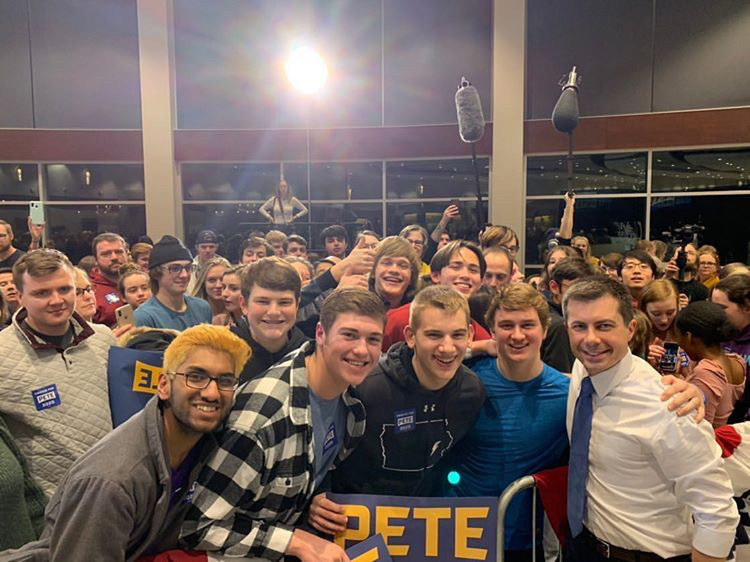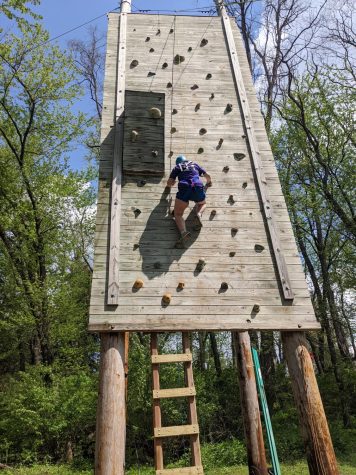Why is Iowa first?
The Iowa caucus is the first stop on the road to the White House. Many young voters don’t see the importance in the caucus, but it’s a crucial step for candidates in the race to become the nominee.
Courtesy of Siddhartha Gopishetty
Students who attended the Pete Buttigieg rally on Monday, January 27th gather around presidential candidate Pete Buttigieg.
Every four years, the presidential election brings attention to the Midwestern state of Iowa, a small, mostly agricultural state. The Iowa caucus is the first step in the race to become the presidential nominee for each party. Besides being first, the benefits of caucusing in Iowa aren’t obvious.
Caucusing is one of the two different processes of choosing a presidential nominee for each political party. A caucus (how Iowa chooses a nominee) is a party meeting in which party members discuss and allocate delegates to potential nominees and choose delegates to represent the state in the national convention later in the summer.
Caucusing isn’t very difficult to do. Participants arrive at the location at a certain time and can only attend the caucus to the party they affiliate with. Then, participants form groups, separated by each candidate or undecided. The leaders of the party count and determine which candidate has 15% of the caucus-goers’ support to make them viable for delegates. Participants will then make a case for their candidate and try to persuade other people to support their candidate. A final count will be made, and candidates with 15% or more of the caucus-goers’ support receive delegates. For both parties, the delegates are proportioned to each candidate with 15% or more. Iowa has 41 delegates, so that means 41 votes are proportioned to each candidate based on the percentage of support they receive.
Iowa’s main importance is that it’s the first contest, going early in the presidential year. However, Iowa has recently gained national attention. Starting in 1972 with George McGovern, Iowa has become an important stepping stone that helps to propel candidates. Candidates that receive relatively little media attention and place third or higher in Iowa become national news, increasing name recognition, and in turn, more voters become interested in what they have to say.
Iowa’s results can also help predict results for the presidential nominee from each party. It also tells the national party leaders who to pay attention to and who might be a good fit for the White House.
Even though about half of the winners in Iowa will go on to win the nomination, Iowa is a good indicator of which candidates won’t do so well. Since 1972, candidates from either party that place fourth or lower in Iowa caucuses have not won the nomination.
If you are 18 by November and would like to caucus this Monday, February 3rd, you can register when you arrive at the caucus or beforehand.

Lauren De Young, senior, is on the staff for the third year. At Liberty, she is involved in INSHOC, NHS, and journalism. Lauren loves volunteering, recently...













